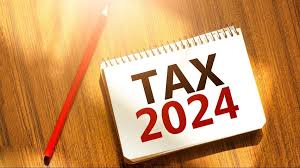A consumption tax is a tax on the purchase of a good or service. Consumption taxes can take the form of sales taxes, tariffs, excise, and other taxes on consumed goods and services.
A consumption tax can also refer to a taxing system as a whole in which people are taxed based on how much they consume rather than how much they add to the economy (income tax).
KEY TAKEAWAYS
- Taxes on goods and services are commonly referred to as consumption taxes.
- Retail sales tax and value added tax are examples of a consumption tax.
- A consumption tax is charged when consumers spend money, while an income tax is assessed on earned money.
Understanding Consumption Taxes
Examples of consumption taxes include retail sales taxes, excise taxes, value added taxes, use taxes, taxes on gross business receipts, and import duties. These taxes are borne by consumers who pay a higher retail price for the good or service. The higher price includes the consumption tax, which is collected by the vendor and remitted to the appropriate federal, state, or local government. Consumption taxes are often levied at different rates on different commodities according to perceptions of whether a commodity is considered a necessity (such as food) or a luxury (such as jewelry).
The consumption tax is not a new idea. The U.S. government used a consumption tax for much of our history before replacing it with an income tax. The Bush administration backed a version of this in 2003, although the proposal was defeated. The proposal called for the United States to shift from a mainly progressive income tax system to a national tax system that utilizes consumption taxes exclusively. Ideally, a properly designed consumption tax system would reward savers and penalize spenders. While the U.S. does not have a national consumption tax, many countries in the world have imposed some form of national consumption tax.
Japan, for example, added a 3% consumption tax to its income tax in 1989. The Japanese Consumption Tax (JCT) rose to 5% in 1997.1 In 2012, a two-part tax increase to double the tax raised it first to 8% in April 2014. It was originally scheduled to rise to 10% in Oct. 2015, but two delays pushed it to Oct. 2019.2 According to The Japan Times, the government will introduce an exemption so that food, newspapers, and some other daily items will stay at 8%.3
Value-Added Tax
Most European countries and Canada have a consumption tax system in the form of VATs, or value-added taxes. In Canada, the VAT is referred to as a Goods and Services Tax (GST) in some provinces, and a Harmonized Sales Tax (HST) in others.4 A VAT is a tax on the difference between what a producer pays for raw materials and labor and what the producer charges for finished goods. Hence this consumption tax is levied on the “value added” to goods and services from the production stage to the final consumption stage.
Excise Tax
An excise tax is a sales tax that applies to a specific class of goods, typically alcohol, tobacco, gasoline, or tourism. Some excise taxes are charged to discourage a behavior or purchase of certain goods that are thought to be detrimental to the economy. These excise taxes are more commonly known as sin taxes. Other excise taxes are applied to people who benefit from a program or infrastructure. For example, taxes on gasoline are collected from drivers to maintain roads, highways, and bridges.
Import Duties
Import duties are taxes levied on an importer for goods entering the country. The taxes are passed on by the importer to final consumers through higher costs. The amount of this consumption tax payable varies greatly depending on the imported good, the country of origin, and several other factors. Import duties can be calculated as a percentage of the value of the goods being imported, or based on the quantity, weight, or volume of the goods being imported.
Retail Sales Tax
The sales tax is usually ad valorem, that is, it is calculated by applying a percentage rate to the taxable price of a sale. Although there is a sales tax in the U.S., it is a form of state tax, not a federal tax. In addition, state sales taxes exempt all sorts of spending, such as food, health, and housing. Countries that have implemented the sales tax as a federal consumption tax, tax almost all consumption.
Consumption Tax vs. Income Tax
A consumption tax is charged to people when they spend money. An income tax is levied on people when they earn money or when they receive interest, dividends, or capital gains from their investments. Proponents of a consumption tax argue that it encourages saving and investment and makes the economy more efficient, while income taxation penalizes savers and rewards spenders. Thus, they argue that it is only fair that people are taxed on what they take out of the limited resource pool through consumption, rather than what they contribute to the pool using their income.
On the other hand, opponents maintain that a consumption tax adversely affects the poor who, by necessity, spend more of their income. They state that since a consumption tax is a form of a regressive tax, the wealthy population consumes a smaller fraction of their income than do poorer households.




